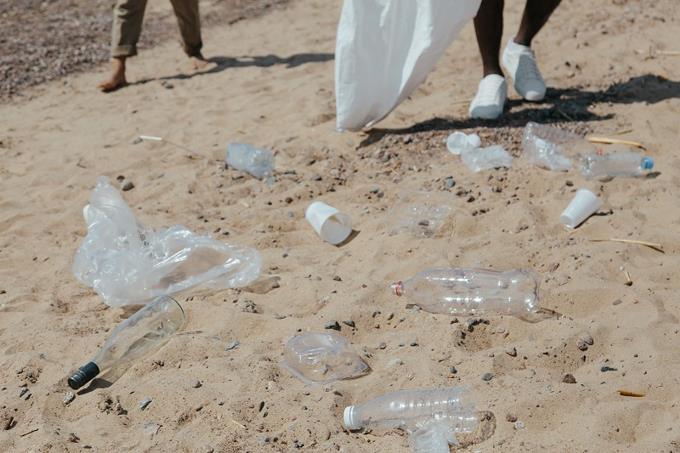Seven out of ten people support the adoption of global strategies to end plastic pollution that especially affects the oceans, according to data from a survey published today by the NGO World Wide Fund for Nature (WWF).
Support rises to almost 80% in Latin America, where residents of Argentina, Brazil, Chile, Colombia, Mexico and Peru have been asked.
The most popular solution proposal among the more than 23,000 people surveyed in 34 different countries would be to make manufacturers and retailers responsible for the reduction, reuse and recycling of plastic packaging (78% agree with this measure) .
Other proposals accepted by the majority are the prohibition of plastics that are difficult to recycle (77%) and single-use plastics (75%), as well as the requirement of labels that clearly show the possibilities of reuse (77%).
76% of those surveyed also advocate forcing manufacturers to use recycled plastic in the manufacture of different products that contain this material.
"This survey is proof that there is overwhelming demand for a global treaty on plastic pollution that holds governments and companies that produce the most accountable"affirmed the founder of the Plastic Free Foundation, Rebecca Prince-Ruiz, the association that has participated in the elaboration of the survey.
A global agreement before 2024
The report is published a week before the start of the first meeting in Uruguay of the intergovernmental negotiating committee for plastic pollution.
The committee will seek to agree a binding treaty to tackle plastic pollution by 2024, as the UN Environment Program meeting agreed in February.
According to this organization, the increase in the levels of contamination by this material represents a "serious global environmental problem that has a negative impact on the environmental, social, economic and health dimensions of sustainable development".
In a scenario without interventions, the amount of plastic waste in aquatic ecosystems could triple, from between 9 and 14 million tons in 2016 to between 23 and 47 million in 2040, according to figures from the United Nations program.
WWF affirms that more than 2,000 species of animals are affected by the presence of polluting plastics in their ecosystems.
"The process of negotiating this global treaty will expose differences between countries, and we cannot allow the laggards to determine our future."highlighted WWF’s global plastics policy manager, Erik Lindebjerg.
